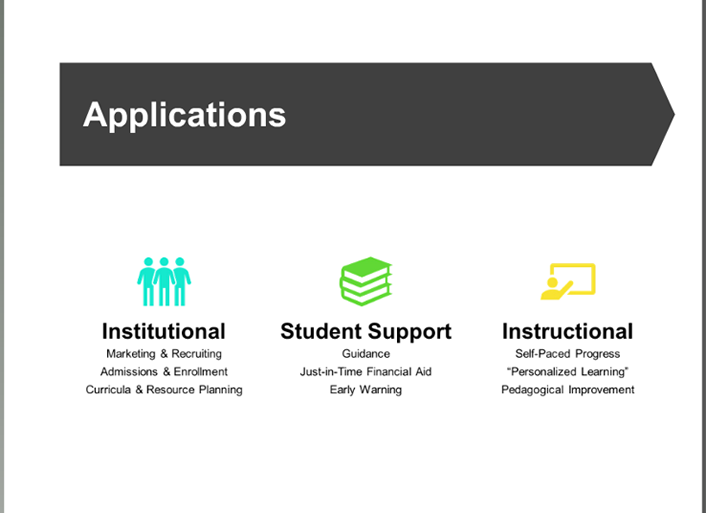Artificial Intelligence in Higher Education: Applications, Promise and Perils, and Ethical Questions — from er.educause.edu by Elana Zeide
What are the benefits and challenges of using artificial intelligence to promote student success, improve retention, streamline enrollment, and better manage resources in higher education?
Excerpt:
The promise of AI applications lies partly in their efficiency and partly in their efficacy. AI systems can capture a much wider array of data, at more granularity, than can humans. And these systems can do so in real time. They can also analyze many, many students—whether those students are in a classroom or in a student body or in a pool of applicants. In addition, AI systems offer excellent observations and inferences very quickly and at minimal cost. These efficiencies will lead, we hope, to increased efficacy—to more effective teaching, learning, institutional decisions, and guidance. So this is one promise of AI: that it will show us things we can’t assess or even envision given the limitations of human cognition and the difficulty of dealing with many different variables and a wide array of students.
…
A second peril in the use of artificial intelligence in higher education consists of the various legal considerations, mostly involving different bodies of privacy and data-protection law. Federal student-privacy legislation is focused on ensuring that institutions (1) get consent to disclose personally identifiable information and (2) give students the ability to access their information and challenge what they think is incorrect.7 The first is not much of an issue if institutions are not sharing the information with outside parties or if they are sharing through the Family Educational Rights and Privacy Act (FERPA), which means an institution does not have to get explicit consent from students. The second requirement—providing students with access to the information that is being used about them—is going to be an increasingly interesting issue.8 I believe that as the decisions being made by artificial intelligence become much more significant and as students become more aware of what is happening, colleges and universities will be pressured to show students this information. People are starting to want to know how algorithmic and AI decisions are impacting their lives.
My short advice about legal considerations? Talk to your lawyers. The circumstances vary considerably from institution to institution.









